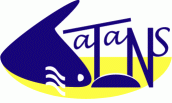The Second Multiannual Scientific Support Plan for a Sustainable Development Policy (SPSD-II) (2000-2006) of Belgian Science Policy finances the search for instruments for sustainable decision making for specific governmental needs. The project is accomplished with active involvement of a user committee, which is composed of relevant stakeholders in the sectors fisheries and sand and gravel extraction.
A conceptual policy model for fisheries and sand and gravel extraction for the Belgian part of the North Sea (BPNS) is highly needed:
- the complexity that involves the establishment of a sustainable management of the North Sea, due to the interactions between the social, the economical and the ecological dimensions of sea fisheries and the extraction of sand and gravel
- policy priorities: e.g. in the Bergen Declaration (2002) of the 5th International Conference of the North Sea, the Ministers of Environment indicated the need to take an integrated ecosystem approach for the management of human activities affecting the North Sea as a priority and to welcome it as a valuable contribution to the declaration of the FAO conference on responsible fisheries in the ecosystem context in Reykjavik (Octobre 2001) There is a high concern about the fact that the majority of the commercially important fish stocks in the North Sea reach treshold limits. The Ministers invited the competent authorities to give high priority to research and studies allowing a better understanding of the structure and functioning of marine ecosystems and contributing to the operational application of an ecosystem approach to fisheries management
- important evolutions at the international level concerning the advancement of a sustainable fishery policy, which are accompanied by the introduction of new concepts, e.g. the precautionary principle, long term sustainability, multispecies approach in fisheries policy,...
- the reviewed European Fisheries Policy since January 2003
- the need for an integrated, multidisciplinary and multi-sectoral coastal and sea management on the national level as expressed at the World Conference on Sustainable Development in Johannesburg (2002)
- current discussions and public controversy on the socio-economic importance and the impact on the marine environment of sea fisheries activities in the BPNS
- increased demand for sea based activities: e.g. cables and pipelines, shipping traffic, renewable energy, and recreation on sea
The MARE-DASM project had generated data and information that could be used as basic input for the BALANS-project. As stated under Methodology, the project works out from an interdisciplinary approach in which outputs and results of previous and ongoing projects are used and redigested. This leads to a process of cross-fertilisation and added value going beyond the earlier monodisciplinary and short-sighted approaches.
The first real interdisciplinary study on the North Sea ecosystem was started during the Impulse Programme Marine Sciences (1992-1996) under the title of "Definition and application of ecological criteria and economical indicators for the study of effects and cost assessment of different types of pollution of the North Sea".
The First Scientific Support Plan for a Sustainable Development Policy (SPSD-I) (1996-2002) of the Belgian Science Policy has financed projects that generated data on very specific and particular components of the North Sea, such as on species and habitats as indicators for the sustainable management of the Belgian coastal shelf:
- HABITAT
- Pathology and ecotoxicology of seabirds and marine mammals of the North Sea
- BUDGET
- Long term trends of the macrobenthos of the BPNS
- MARE-DASM
Several projects started concurrently in the frame of the Second Scientific Support Plan for a Sustainable Development Policy (SPSD-II) (2000-2006). This plan focusses on aspects that are specifically relevant for the sustainable management of the BPNS thereby delivering additional insights that are useful for the BALANS-project:
- TROPHOS
- MAREBASSE
More data from projects financed by other organisations do exist but are not always available to the public, or have to be searched for in specialised databases:
- ICES


